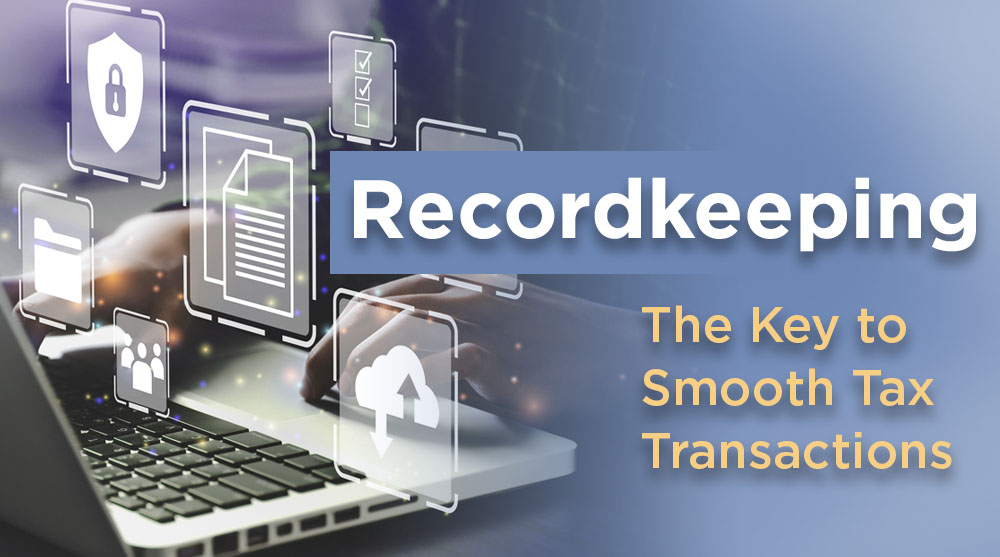Well-organized recordkeeping makes it easier to prepare a tax return and help provide answers if your return is selected for examination or if you receive an IRS notice.
OK… here’s the deal. As a tax-payer, you must keep records. These records include receipts, cancelled checks and other documents that support an item of income, a deduction or a credit appearing on a return. These little documents may be needed to back up everything you put on your tax return. That means they need to be kept generally until the period of limitations for that return expires.
Periods of limitations are different for assessments of different types of tax. Here are three types of periods that tax cannot be assessed after:
- Three years for tax you owe. This is counted from the date you filed the return.
- Any period of time if you file a fraudulent return or fail to file a return. In such cases, there is no period of limitations.
- Six years from the date you filed a flawed return. This applies if you fail to report reportable income of more than 25% of the gross income shown on the return, or income attributable to foreign financial assets that is more than $5,000.
Likewise, deadlines for filing refund claims depend on the claim type:
- For filing a claim for credit or refund, the deadline to make the claim is three years from the date you filed the original return or two years from the date the tax was paid (whichever is later).
- The deadline for filing a claim for an overpayment resulting from a bad debt deduction or a loss from worthless securities is seven years from when the return was due.
Include Property Records In your Recordkeeping
If you file a taxable disposition for your property, you’ll need to keep records relating to all the items you disposed of until the period of limitations expires. This is measured from the end of the year when you made the filing. Keep records so that you can calculate your basis for computing gain or loss when you sell or otherwise dispose of the property.
Include Health Care Insurance Coverage in your Recordkeeping
You should keep records of your health care insurance coverage and your family members’. If you’re claiming the premium tax credit, you’ll need information about any advance credit payments you received through the Health Insurance Marketplace and the premiums you paid.
Business Income and Expenses should be in your Recordkeeping
If you’re in business for yourself, there’s no particular method of bookkeeping you must use. However, you must use a method that clearly and accurately reflects your gross income and expenses. The records should substantiate both your income and expenses. If you have employees, you must keep all your employment tax records for at least four years after the tax becomes due or is paid, whichever is later.
Like it or not, the IRS requires you to keep records so you have a backup to prove everything you put on your tax return. Insurance companies and creditors may require you to keep records longer, so you may want to verify that before you start discarding paperwork.
As long as you can provide documentation when needed, it doesn’t matter how you keep records, but the IRS suggests you keep them in an orderly fashion and in a safe place.

